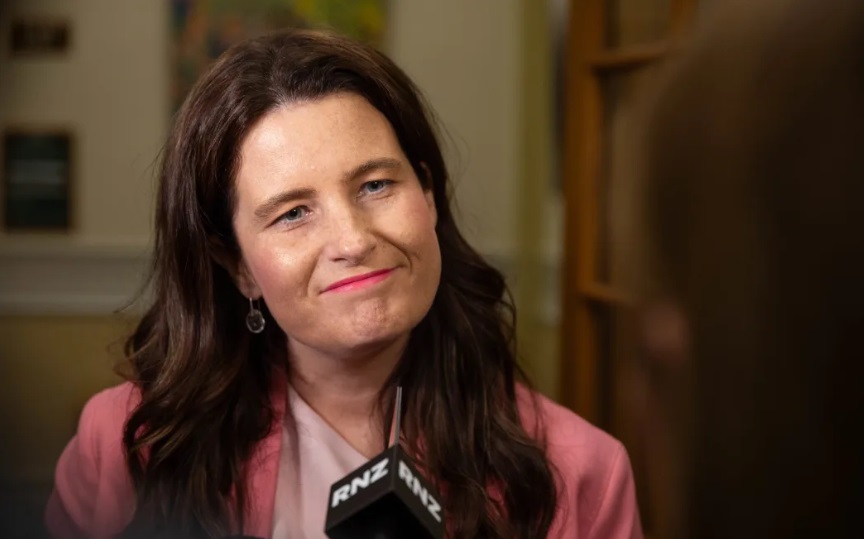
Finance Minister Nicola Willis has defended her government's communications with Korea over the ferry project's cancellation, and hinted at a preference for smaller, non-rail port facilities.
The decision to rescind funding put forward by the previous Labour government, sending the project back to the drawing board, was one of the first the new government made after coming to office.
RNZ has since reported on advice from the Ministry of Foreign Affairs and Trade which warned ministers "careful and deliberate" communications would need to be had with the Korean government ahead of any public announcement of the cancellation.
However, the ministry confirmed those talks only happened the same afternoon as the 3.30pm announcement, leaving little time.
Speaking to First Up's Nathan Rarere, Willis said the communications had been both careful and deliberate.
"Yes, they were careful and deliberate ... prior to making our comms we sought advice on how to do that in a way that was respectful to Korea, and we followed that advice."
She said the relationship with Korea since then had been "absolutely fine".
"What we've stressed throughout is that the issue was not with the ship contract - in fact, that had been fine - the issue was with the construction at the ports which had not been properly factored into the project, which had blown out massively in cost and the logistics of which hadn't been well thought through."
She told Rarere that any new ferries which would replace the ageing Interislanders would "have to be logical for the port facilities that are there", and hinted the government was interested in more basic facilities than what had been proposed.
"Facilities that allow for competitive ferry service, which is to say multi-user services ... what we would prefer to see is a solution which involves developments at the port that creates benefits not just for KiwiRail but for other port users as well."
She said the view from the ports and others was that KiwiRail had been "difficult to work with on those projects and that they saw proposals which were better for all concerned".
KiwiRail's port development proposal had also been "so enormous and out of size with other users of the port that they were requiring bespoke, particular port facilities", Willis said.
However, it is also KiwiRail's insistence on a Cook Strait rail freight service which makes the requirements of the berths unique.
The minister said having rail on the ferries was now unusual overseas, two of KiwiRail's three current ships were not rail-enabled, and KiwiRail had operated without that capability in the past - such as after the Kaikōura earthquake.
Put to her that would mean extra steps - of loading freight on to trucks to then be transported on to the ships and unloaded again at the other end - and that consumers would end up paying for that, Willis said that was the way things had been done around the world for some time.
"It happens around the world, it happens in New Zealand, there's nothing too unusual about it."
The government is yet to make a decision on what to replace the ageing ferries with, but the port infrastructure, particularly in Picton, is also coming to the end of its useful life and will need a revamp regardless.













